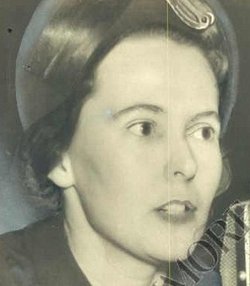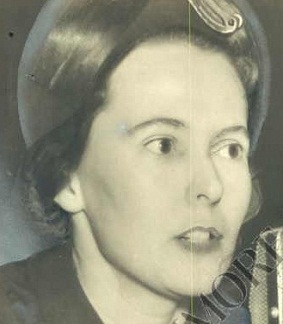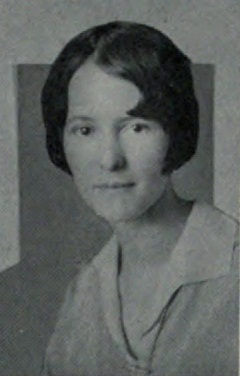She joined the board in 1937, two years after its creation, and had a leading role in the arcane but far-reaching field of administrative procedure.
After the passage of the Taft-Hartley Act in 1947, she prepared the brief and argued the first case to enforce an NLRB action against a union. That same year, she headed the legal team bracing for the effects of the Administrative Procedure Act. She held virtually every legal post within the NLRB and had argued before every US court of appeals on its behalf.
With a reputation for toughness, concision, and persuasiveness, she was named an administrative law judge (then called a trial examiner) in 1960. The chairman of the NLRB at the time, Frank W McCulloch, said of her in 1965 that "she had gained the respect of some of the best labor lawyers in the country for her dignity, tact, firmness and wise judgment."
In 1965, she was chosen by the Civil Service Commission to be one of a handful of trial examiners hearing school desegregation cases arising under Title VI of the Civil Rights Act of 1964, as well as challenges to the Voting Rights Act.
For this difficult task, she traveled to such states as Alabama, Georgia, and Mississippi that were still in upheaval from the civil rights movement. There, she quietly but sternly upheld the efforts of the Justice Department registers to list long disenfranchised African Americans on voting rolls.
Judge Boyls was honored for her efforts in 1966 with the Federal Woman's Award. She told a Dallas News reporter that she was glad to have the award, but that she felt it was condescending. "It's about like honoring a Negro because of his race only, instead of his ability. No one likes that," she said. "I think there's a question whether the idea of the award really promotes the desire to eliminate any discrimination - which there still may be."
As the first woman trial examiner for the NLRB, and one of the few women in the federal system at that level during that period, she was acutely aware of such pressures.
Judge Boyls, a native of San Antonio, received bachelors and law degrees from the University of Texas at Austin. She worked for the Home Owners Loan Corporation in Dallas in the 1930s before moving to Washington in 1937.
She retired from the NLRB in 1974 after a 37-year career. She had kept a home in Rappahannock County, where she painted and created wildflower arrangements. As an active member of the Mycological Association of Washington, she also wandered afield searching for edible mushrooms, while assuaging the fears of relatives who were worried when, in her nineties, her eyesight began to fail.
Judge Boyls also had been a volunteer at the Lighthouse for the Blind. She leaves no immediate survivors.
The Washington Post
21 February 2002
She joined the board in 1937, two years after its creation, and had a leading role in the arcane but far-reaching field of administrative procedure.
After the passage of the Taft-Hartley Act in 1947, she prepared the brief and argued the first case to enforce an NLRB action against a union. That same year, she headed the legal team bracing for the effects of the Administrative Procedure Act. She held virtually every legal post within the NLRB and had argued before every US court of appeals on its behalf.
With a reputation for toughness, concision, and persuasiveness, she was named an administrative law judge (then called a trial examiner) in 1960. The chairman of the NLRB at the time, Frank W McCulloch, said of her in 1965 that "she had gained the respect of some of the best labor lawyers in the country for her dignity, tact, firmness and wise judgment."
In 1965, she was chosen by the Civil Service Commission to be one of a handful of trial examiners hearing school desegregation cases arising under Title VI of the Civil Rights Act of 1964, as well as challenges to the Voting Rights Act.
For this difficult task, she traveled to such states as Alabama, Georgia, and Mississippi that were still in upheaval from the civil rights movement. There, she quietly but sternly upheld the efforts of the Justice Department registers to list long disenfranchised African Americans on voting rolls.
Judge Boyls was honored for her efforts in 1966 with the Federal Woman's Award. She told a Dallas News reporter that she was glad to have the award, but that she felt it was condescending. "It's about like honoring a Negro because of his race only, instead of his ability. No one likes that," she said. "I think there's a question whether the idea of the award really promotes the desire to eliminate any discrimination - which there still may be."
As the first woman trial examiner for the NLRB, and one of the few women in the federal system at that level during that period, she was acutely aware of such pressures.
Judge Boyls, a native of San Antonio, received bachelors and law degrees from the University of Texas at Austin. She worked for the Home Owners Loan Corporation in Dallas in the 1930s before moving to Washington in 1937.
She retired from the NLRB in 1974 after a 37-year career. She had kept a home in Rappahannock County, where she painted and created wildflower arrangements. As an active member of the Mycological Association of Washington, she also wandered afield searching for edible mushrooms, while assuaging the fears of relatives who were worried when, in her nineties, her eyesight began to fail.
Judge Boyls also had been a volunteer at the Lighthouse for the Blind. She leaves no immediate survivors.
The Washington Post
21 February 2002
Family Members
Sponsored by Ancestry
Advertisement
Advertisement










